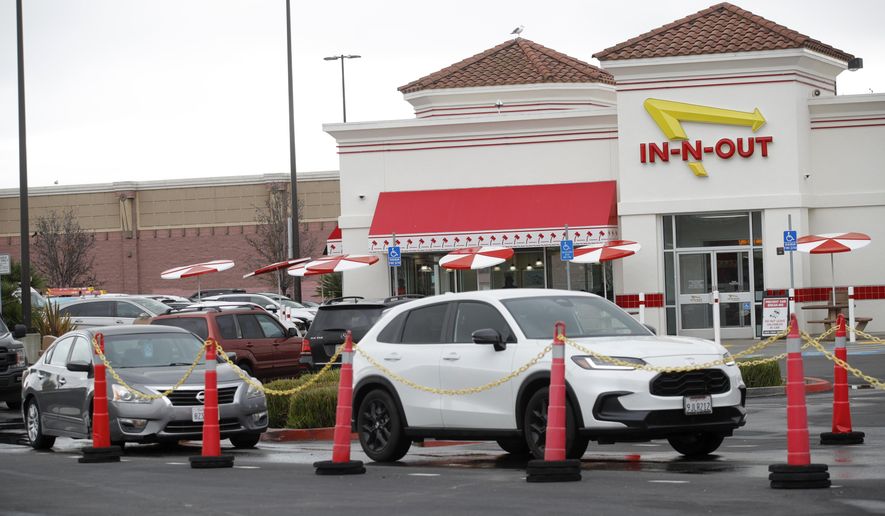OPINION:
Liberals aren’t good at thinking ahead. Last April, California mandated an increase in the hourly minimum wage to $20 for fast-food workers. The Democratic supermajority in the Legislature didn’t spend much time thinking about the consequences of this decision. They assumed the measure would help young people earn a living wage, and they felt good about it.
A report released last month by the management consulting firm Berkeley Research Group shows that the Golden State’s attempt to turn flipping burgers into a lucrative profession only worsened the situation.
The mandatory wage hike took effect almost a year ago, and Bureau of Labor Statistics data reveals that unemployment within the fast-food industry increased 0.2%. Low-cost restaurants are normally resilient. The only other times employment dipped at these establishments were during the 2009 economic meltdown and the 2020 COVID-19 panic.
To better understand what happened, the Employment Policies Institute asked 183 restaurant owners about the impact of the wage boost on their operations. Two-thirds said payroll costs jumped by at least $100,000.
Each location adjusts to the higher operational cost by raising prices, slashing the number of hours each employee works, firing workers or some combination of these remedies. Forty percent of business owners replaced entry-level jobs with self-service kiosks.
Despite what leftists tell themselves, there’s no free lunch. Teenagers lucky enough to stick around and “benefit” from the wage hike aren’t necessarily better off.
“Even if no jobs are eliminated (a dubious assumption given the BLS data discussed above), a 20% reduction in hours worked with no overtime increases would erase the financial gains from the 25% hourly wage increase, leaving workers with the same or even less total income,” the Berkeley Research Group economists calculated.
Teenagers who land their first jobs at McDonald’s learn valuable workplace skills that can be stepping stones for greater things. Former California senator and presidential aspirant Kamala Harris believes this so strongly that she once worked at the Golden Arches, despite the Chicago-based fast-food empire not finding any record of her doing so.
Customers are the other big losers in the change. The Berkeley Research Group created an index of menu pricing to compare California’s change against neighboring states. The net result was a 14.5% spike in prices in the Golden State — almost double the inflation elsewhere.
As if the minimum wage hike weren’t enough, California established a union-dominated Fast Food Council and charged it with imposing onerous burdens on the industry. No wonder many owners are fed up. Since April, more than 1,000 restaurants in the state have closed, according to an analysis by Snappy, a restaurant technology provider based in Canada.
The most Californian eating establishment, In-N-Out Burger, is starting to acknowledge the state’s hostility toward commerce. The company announced the closure of its Irvine, California, headquarters and plans to open a second base of operations in the Nashville, Tennessee, area.
Until now, all 415 of the popular chain’s locations were in California or nearby states that are the typical destinations for its exiles, such as Nevada and Arizona. For 75 years, the family-run chain’s owners have refused to move east of Texas.
They must realize that California is no longer the fertile ground for business and opportunity it once was, and that red states represent the future.
Update: This article has been updated with additional links to source material.




Please read our comment policy before commenting.